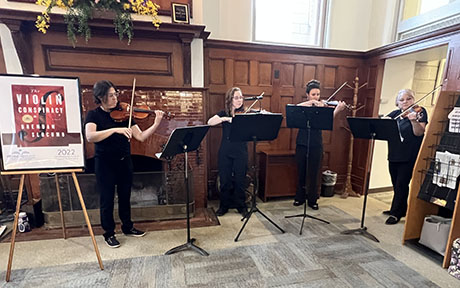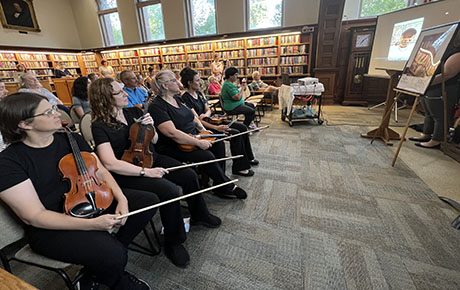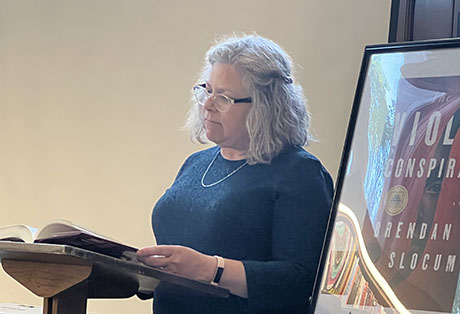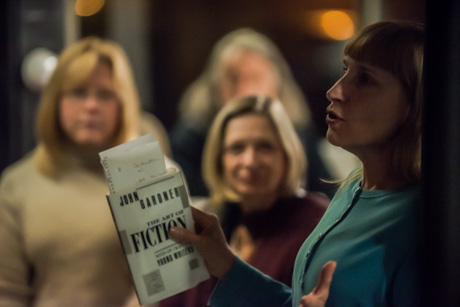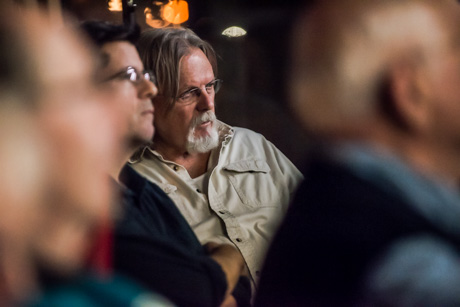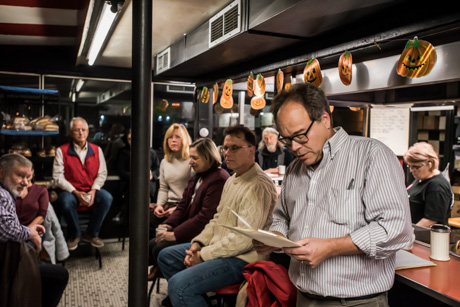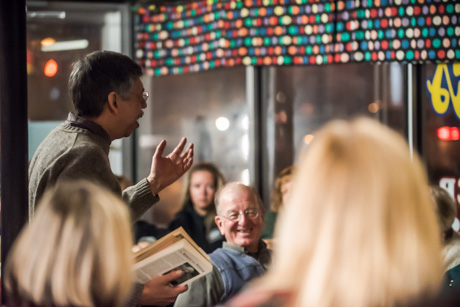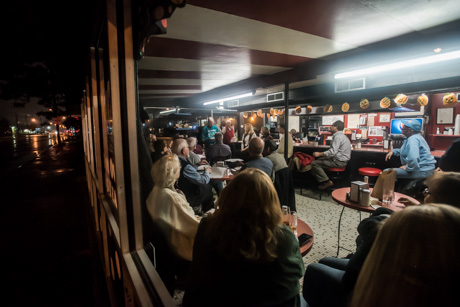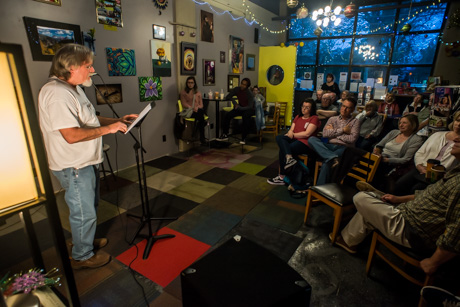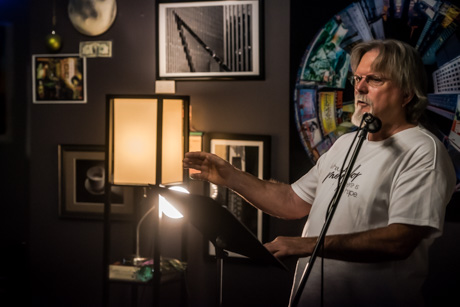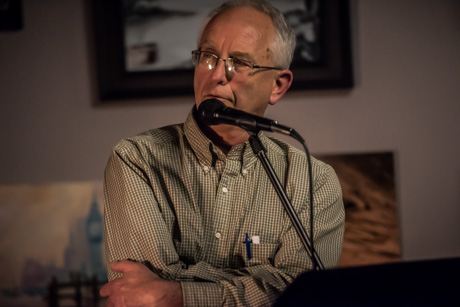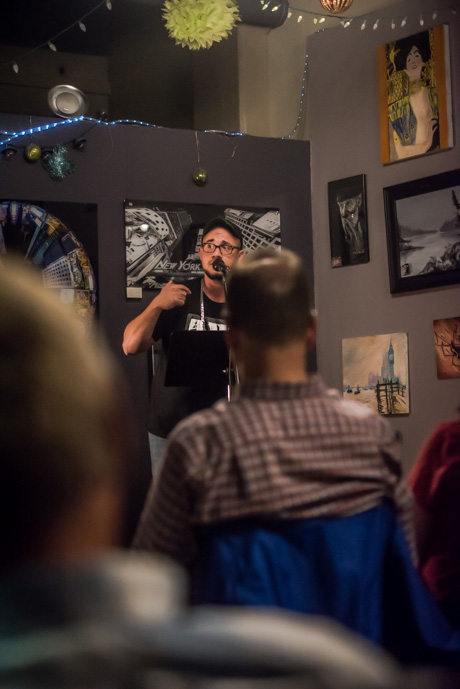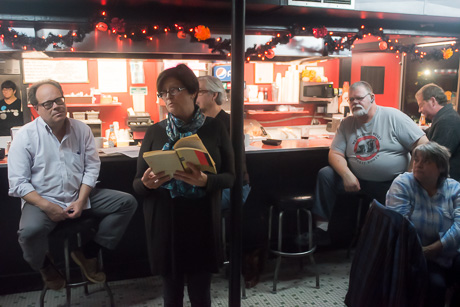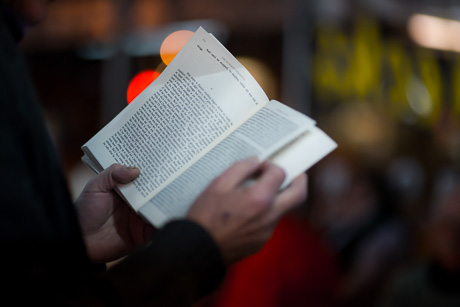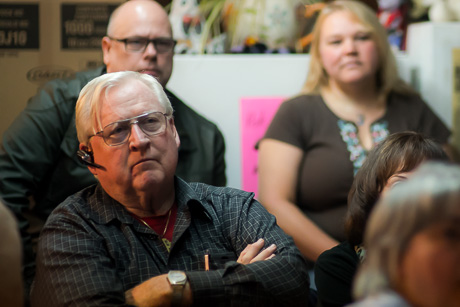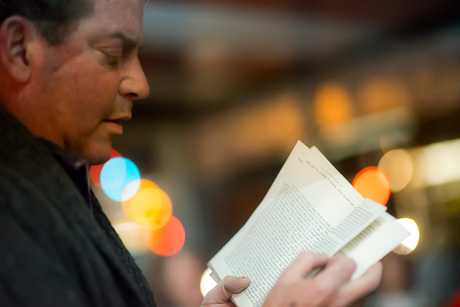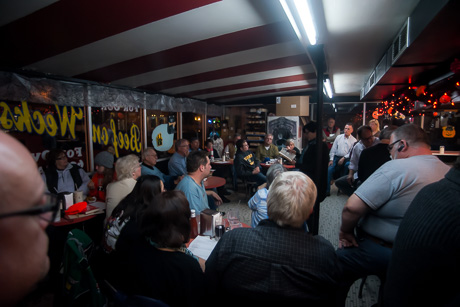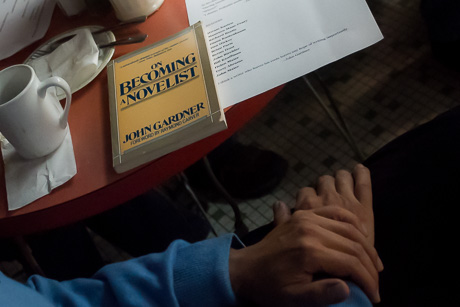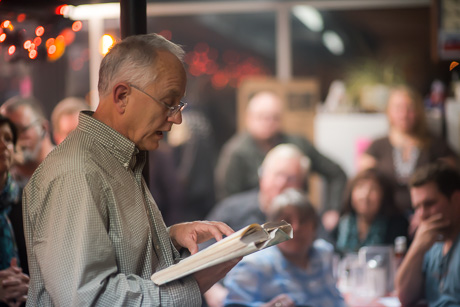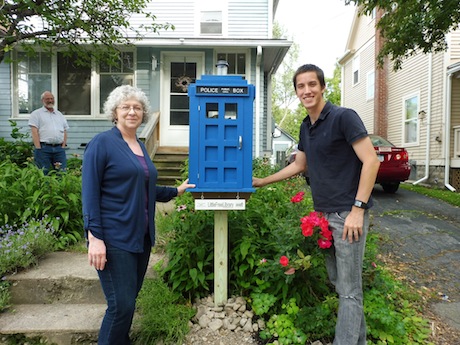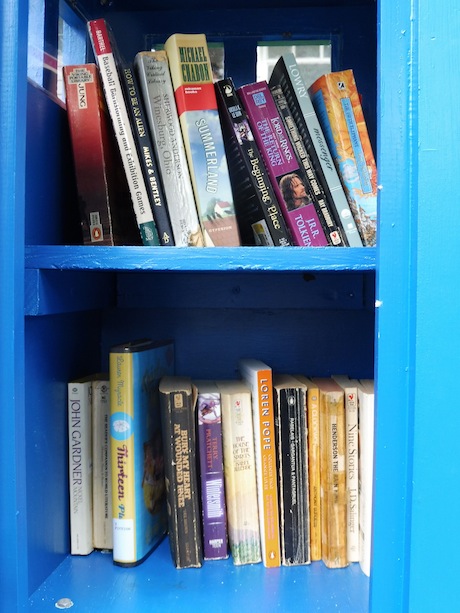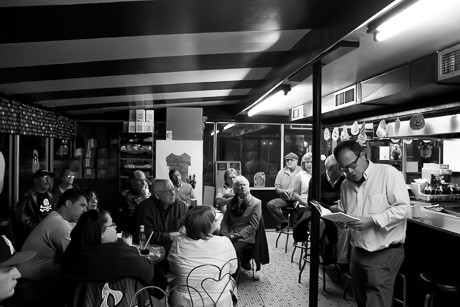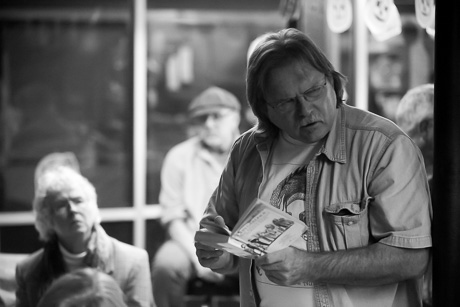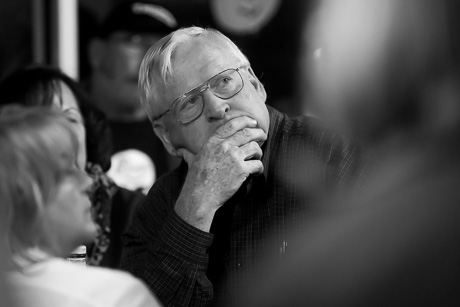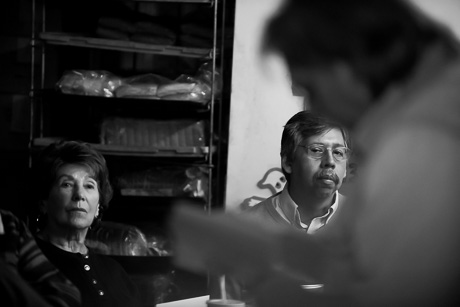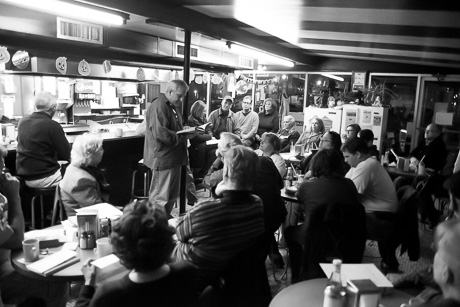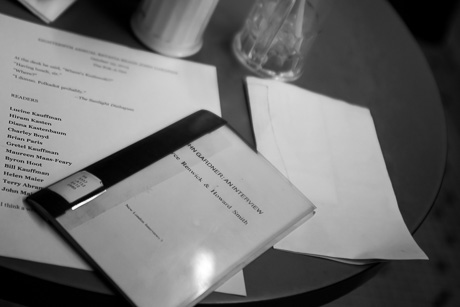Bethany native pens sci-fi thriller to encourage another way 'to think about the world'
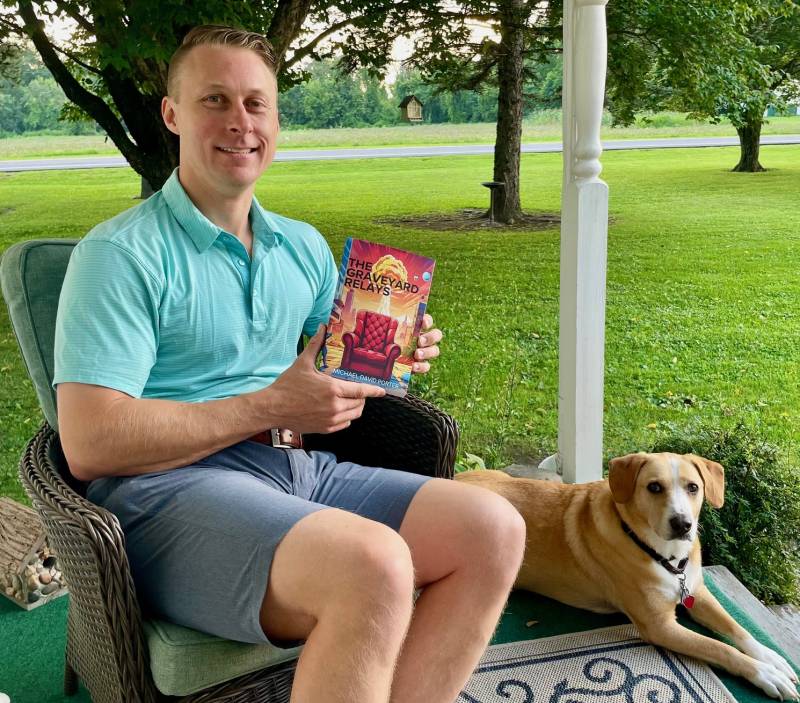
Submitted Photo
As a former teacher, Alexander graduate Mike Porter liked to investigate particular issues, including science fiction, the paranormal, and aliens, and it led him to questions about if the universe is so vast, "where is everybody?"
“We should be seeing signs of everyone. And one of the hypotheses that is well known is what's called the great filter, which is civilizations will appear throughout the universe, but they don't last long because they succumb to various disasters, whether it's an asteroid impact or a pandemic or a nuclear war and things like that,” he said during an interview with The Batavian. “Being a social studies teacher talking about these types of issues with students, I think I kind of started thinking, 'geez, I really feel like humanity is coming to or is at a crossroads, where we can kind of come together, overcome our differences, and address some of these key issues. Inevitably, there's going to be a big rock that hits Earth at some point. Are we going to be prepared for that, the next big pandemic?”
It was that thinking and those questions, plus prior discussions with a colleague, that led him to write his first book, the science fiction thriller, “The Graveyard Relays.”
While working as a teacher in Wyndham, Porter was drawn to a fellow teacher named Daniel with colorful stories of adventure, including one that included his dog and a bear. Daniel had a van that he lived and traveled in with his dog. The dog decided to chase the bear one day until it dawned on the bear that he was bigger and it was silly for him to be running away, so he turned around and began to chase the dog back toward Daniel’s van.
It made for an exhilarating story. The owner anxiously waited for the dog to get into the van so he could close the door safely behind both of them, leaving the bear outside.
While that was a fun story, it served as the basis for Porter’s book, with the dog and bear as metaphors for space research: Porter began to see how pursuing life out in the universe could have the same potential effect.
“I thought, how incredible, in terms of interstellar exploration; what if that were to happen with an interstellar probe where we go out exploring and then accidentally bring something back?” he said. “So it was all these things kind of together that gave me the idea for the premise of the book. I didn't really have experience with the writing realm, like writing classes. Never been in a competition, never really practiced, but I just had this kind of urge to start writing these ideas down and see if it came to anything.”
Porter’s first book evolved in the way his off-grid home has: through a series of inspirations that pushed him on toward a final ending.
Just as he and his wife Nicole went from having no electricity, running water or internet connection at their Salisbury Center house to an abode with all the amenities, the 40-year-old Bethany native fine-tuned his science fiction work, which he began in 2016, from an outline of intergalactic premises to a full-fledged collection of researched characters and planets, a plot and enough action to keep readers turning the 338 pages for a debut in June of this year.
Throughout the process Porter was fueled by an undeniable passion for his favorite topic.
“I think since I was a kid, I’m naturally drawn to it. I loved 'Star Wars' when I was a kid. I think my favorite movie is 'Interstellar.' And I’ve always been fascinated by aliens,” he said. “That’s another thing that I was actually concerned about. Since 2017 there’s been this growing disclosure movement, and I thought, ‘great, I’m writing this book about discovering alien life and it’s going to get blown out of the water because the government’s gonna say there are already aliens here.’ That hasn’t happened yet, but I think that time is probably coming.”
He’s not certain what that looks like, exactly, but he feels confident that something — of intelligence life form — is out there, or here, with us.
And this book hinges on that belief that we aren’t alone.
“One possibility is what has become known as the great filter,” he writes. “This theory postulates that civilizations universally succumb to various apocalyptic events before humanity has the opportunity to detect them. Perhaps there are untold numbers of alien graveyards that are just waiting to be found and exhumed.”
The Graveyard Relays is a 25th-century documentary series that finds and investigates extinct alien wastelands for education and entertainment. A team led by Marshall Holst, based in the Catskill Mountains, employs ASIP, an interstellar probe leased from the United Nations to cruise the cosmos searching for intelligent life.
Meanwhile, Marshall likes to escape from the “technologically saturated world” and his own stressful occupation by backpacking into the woods of the Northeast with his dog Wadsworth. However, Porter suggests that, just as with the documentary series, there’s no telling what the pair might encounter in those woods, far from the safety of the interneural Net, a hyper-intelligent artificial intelligence.
“There are risks and dangers inherent with exploration,” he writes. “In the same way, as he and his team continue to send ASIP to strange new worlds, there’s no telling what the probe might find … and what it might bring back.”
Michael David Porter grew up in Bethany and graduated from Alexander High School in 2002. He was an athlete of sorts — playing for Batavia Ramparts hockey team from second through seventh grades before moving onto baseball, football, basketball and then track, winning sectionals as a senior.
He wasn’t particularly into writing, though did some acting in school — winning a Rochester Broadway Theater League Stars of Tomorrow honor for his role in “Oklahoma” and performing in a number of shows at Geneseo State College and Delaware Park. He moved south to Wyndham to become a teacher and also ended up doing a monthly radio show.
Suffice it to say Porter has some creative chops. His parents, Dave Porter, who plays trombone in the Genesee Symphony Orchestra, and Jill, a retired nurse, still live in the Genesee County area, along with other family members, while Porter has since moved to his off-grid place in the summer of 2023.
When he interviewed for his latest job as an instructional coach at the Hamilton Fulton Montgomery BOCES, Porter forewarned them that he might not be able to come right in on severe winter days. The local highway super helps out with plowing the homestead driveway, he said, but it could get harsh.
Why the move to such a modest existence? He and his wife are hikers and nature-lovers who, ironically met online, also like to disconnect from the online world, he said.
“I think it’s important for people to disconnect from technology and get back to nature. People are meant to be active outdoors and studies show that mental and physical health can be improved significantly when people spend time outside,” Porter said, emphasizing a moral for his book. “People should stick together, put down their phones, and go outside.”
He made purposeful decisions about his book along the way, such as making people vegetarians (though he is not) and using androgynous names with no specific pronouns so that readers could fill in their own details for certain characters.
“I envision a future that is international, you know, I think if we're going to get to this future where there's basically world peace, we're going to have to set aside a lot of our differences and learn to live together,” he said. “And I wanted to be inclusive in that way, so I looked up androgynous names from different nationalities and tried to put a lot of these people on the team, and I also, in my book, avoided using any pronouns for those people. (Readers) hadn't noticed that they didn't notice that I didn't use pronouns, which tells me that it's a very fluid, natural thing. And the great thing is the reader then has the freedom to apply and attribute whatever they want in terms of identity to these characters.”
He put the book on a shelf, so to speak, for a few years until he was hit with more inspiration. Then, “I hit it really hard three years ago.” That’s when he fleshed out those 56 chapters and scenarios.
The team has sent ASIP out into exploration and it encounters an unexpected obstacle.
The team watched from their workstations in horror, each individual feeling deep pangs of terror and guilt. “Yes sir,” ASIP replied. “Preparing to return to orbit.”
Without warning, Peace accelerated toward ASIP, having apparently transitioned to its jet turbines. The gray, conical beast was closing in fast. “ASIP, there’s no time, initiate your emergency return now!” Marshall yelled.
“But Marshall, my software is being corrupted and the gravity wake could potentially —“
“Now ASIP! Return to Earth now!”
ASIP engaged the gravity drive, and from within the Pool, Marshall saw the world go dark, but for a fraction of a second, the haunting image of Peace and ASIP alone together in the gravity bubble hung frozen in the air.
Another chapter describes a conversation between Marshall and his dog Wadsworth after a crisis occurs.
“Come on Wads, get your things put together. We have to got a trip.”
“A trip? But aren’t we going to have to …”
“I’ll explain on the way, Wads. Grab your food and some toys and anything else you might need for a few days.”
Marshall ran up the stairs to the bedroom to repack his bag with new clothes. He yawned at the sight of his bed as he considered a five-minute nap, but flashing thoughts of enslavement by an alien robot made him decide against it.
But Marshall, toys won’t be good for a camping trip, and I don’t think we should go camping right now.
“We aren’t going camping. We’re going to the moon.”
Porter hopes that readers give his genre a try and enjoy the stories woven through the book to an ending that he didn’t originally include until both his wife and mother said he needed one that was more conclusive. Though it’s science fiction, there are undoubtedly broader messages about society and a “sink or swim together” attitude.
“The people that do read it, I hope they enjoy it and get something out of it, and maybe at least have some fun conversations for them, and a different way to think about the world,” he said.
The book is available on Amazon.com.

